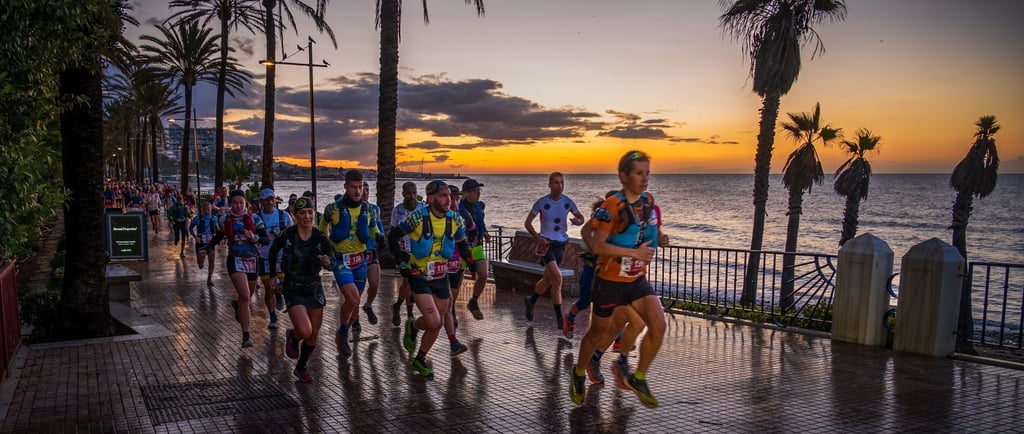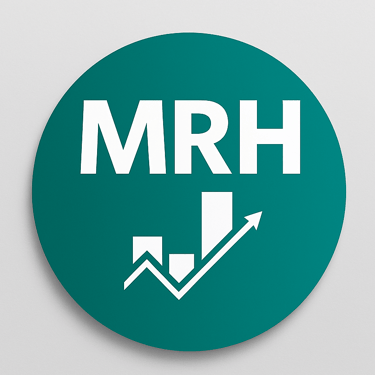Sierra Blanca Trails: From Local Paths to Global Race Destinations
For decades, Marbella was known worldwide for its golden beaches, luxury clubs, and cosmopolitan lifestyle. But today, another image is putting the city on the global map: runners climbing the rugged trails of Sierra Blanca with La Concha towering above. What was once a local hiking gem has transformed into a world-class trail running destination, attracting thousands of athletes from across the globe and redefining Marbella as more than a seaside paradise.
MR
9/6/20252 min read


Races that Define a Mountain Legacy
At the heart of Marbella’s mountain racing scene is the Sierra Blanca Trail, celebrating its 10th edition in 2025. This flagship event offers three demanding distances—Destroyer (43 km), Rompepiernas (30 km), and Trampantojo (12 km)—challenging even the most experienced trail runners.
Adding to the calendar, the Marbella Epic Trail has emerged as one of Europe’s toughest endurance races. With 65 km and more than +5,000 m elevation gain, it tests the limits of ultra-distance athletes and positions Marbella alongside global giants of mountain sport.
Together, these events form a February festival of endurance that transforms Marbella into the epicenter of trail running—right when the city’s tourism season is traditionally at its lowest.
International Growth and Inclusivity
The international profile of Marbella’s mountain races has exploded in recent years. Just three years ago, runners from only seven countries took part. In the latest editions, that number has risen to over 35 countries, bringing athletes from Europe, the Americas, Asia, and Africa to Marbella’s trails.
But what makes Sierra Blanca truly stand out is its inclusivity. The Sierra Blanca Rangers category follows federation standards, giving youth from Prebenjamín to Cadete the chance to compete. On popular demand, organizers even added a playful Pollitos category (ages 4–5) for the youngest runners. And in 2025, a new Libre category will debut: non-competitive, open to all ages, designed as an entry point for newcomers to trail running.
Inclusivity also extends to athletes with special capacities or disabilities, ensuring that Sierra Blanca’s trails are open to everyone who wants to experience them.
Economic and Cultural Impact
By hosting these races in February, Marbella fills a vital tourism gap. Hotels, restaurants, and local businesses benefit from the arrival of athletes, families, and supporters during what is usually the quietest part of the year. This off-season boost not only generates direct revenue but also strengthens Marbella’s image as a year-round destination.
Culturally, the events embody Marbella’s evolving identity: sustainability, health, inclusivity, and international exchange. Efforts such as reduced plastic use, environmental education programs, and integration of schools and communities showcase how sport can enrich the social fabric as much as the economy.
Global Recognition
Marbella’s trail events are no longer just local highlights—they are fixtures on the international stage. The Sierra Blanca Trail is officially certified by the ISF (International Skyrunning Federation) and featured on platforms like ITRA and the UTMB Index, with regular coverage in both Spanish and international press.
These affiliations attract elite athletes and growing mass participation, while reinforcing Marbella’s global reputation as a city that blends luxury with adventure.
Where Luxury Meets the Mountains
Marbella is proving that its future is not limited to sun loungers and champagne bottles. Its rugged Sierra Blanca trails now stand alongside the world’s best mountain courses, offering athletes and brands alike a powerful story of endurance, inclusivity, and transformation.
For runners, the trails promise breathtaking views and unforgettable challenges. For Marbella, they represent a new identity: a global adventure hub where luxury meets the mountains.
